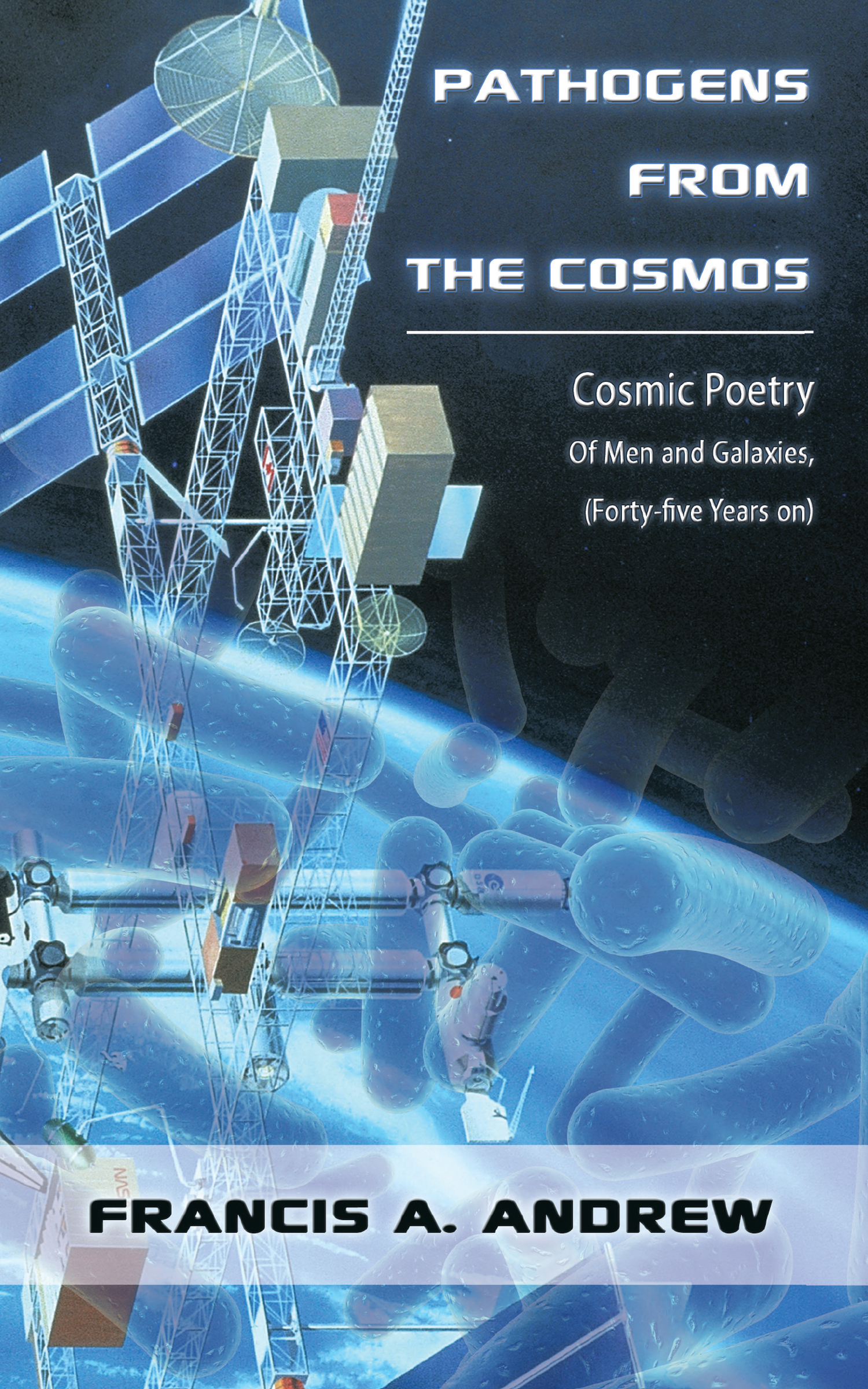
ASK A POLICEMAN
The Student’s Book consists of three parts which if mastered well, allows the student to proceed on to the Police Writing Course. The Student’s Book teaches English in the conventional way, from Beginner level all the way to Advanced but with a bias towards police vocabulary, situational material, and procedures.
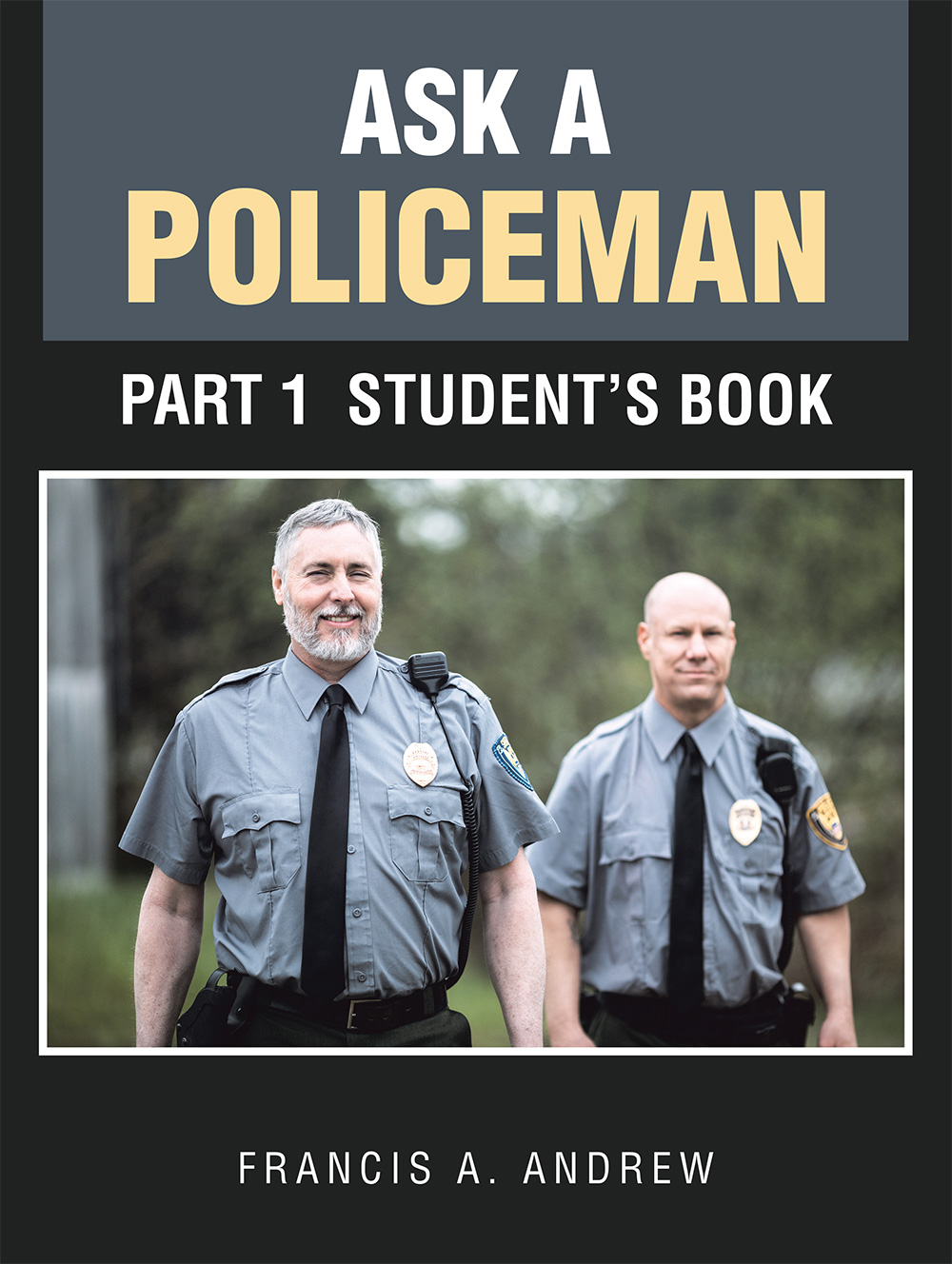
ASK A POLICEMAN POLICE WRITING COURSE
This book in the series mainly consists of different types of police report writing. It also treats upon criminal profiling. This procedure examines statement analysis for the detection of leakages, and embedded confessions during suspect interrogation. Also looked at is the behaviour of suspects and the importance of forensic evidence in a crime scene. The paradigm for the criminal profiling section is the case of the missing toddler Madeleine McCann.
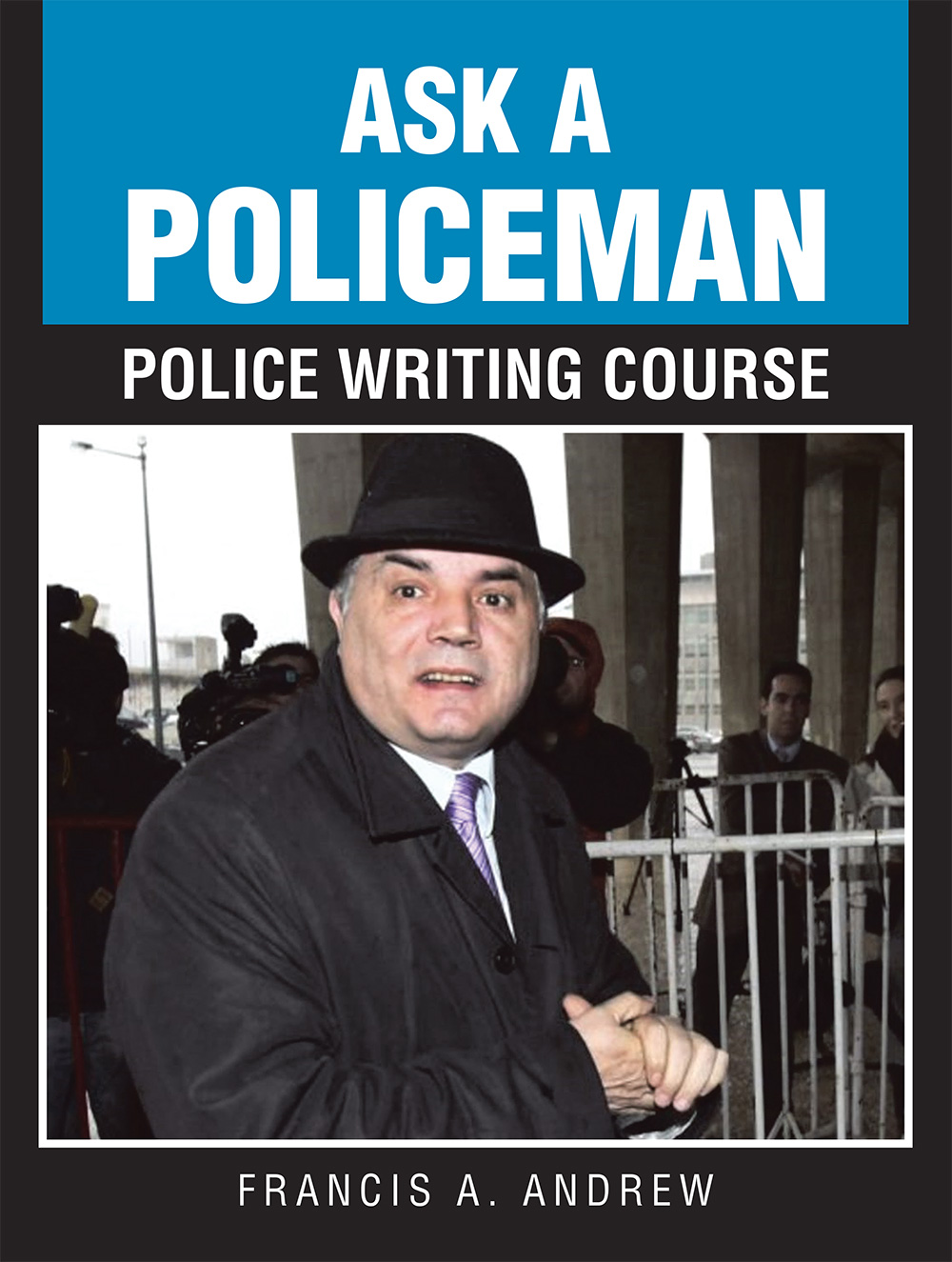
ASK A POLICEMAN RESOURCE MATERIALS FOR INSTRUCTORS
This book in the series consists of diagnostic placement tests to determine into which level a student should be put. These test a student’s reading, writing, speaking, listening, and comprehension skills. They are administered on an escalatory basis with the student being put in the level below the exam he failed. For example, if a student passes the test for levels 1, 2, and 3 but fails level 4, he is put into level 3.
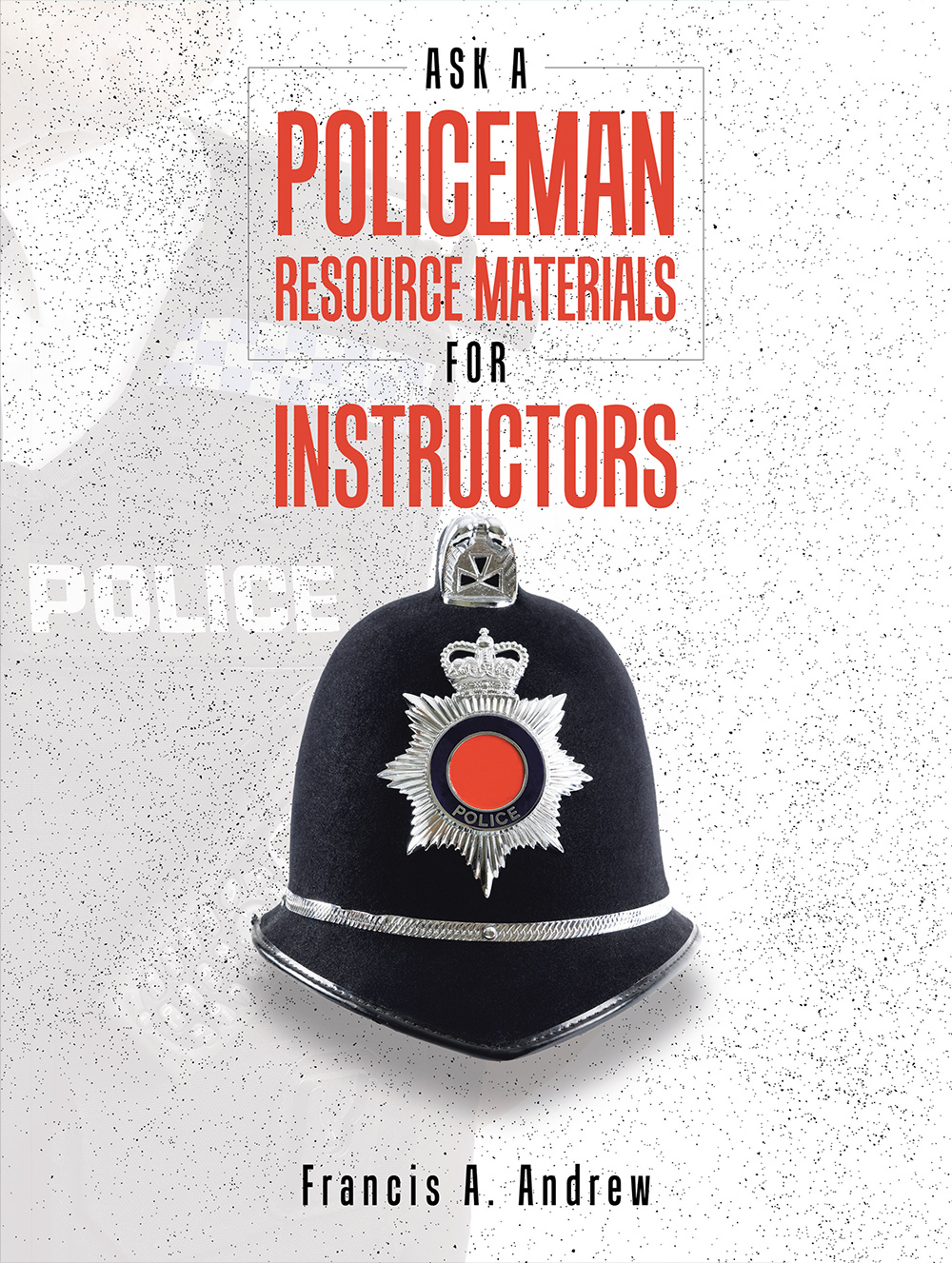
ASK A POLICEMAN
The Workbook is basically the same as the Student’s Book and gives the students a chance to work on their own and so reinforce what they have learned.
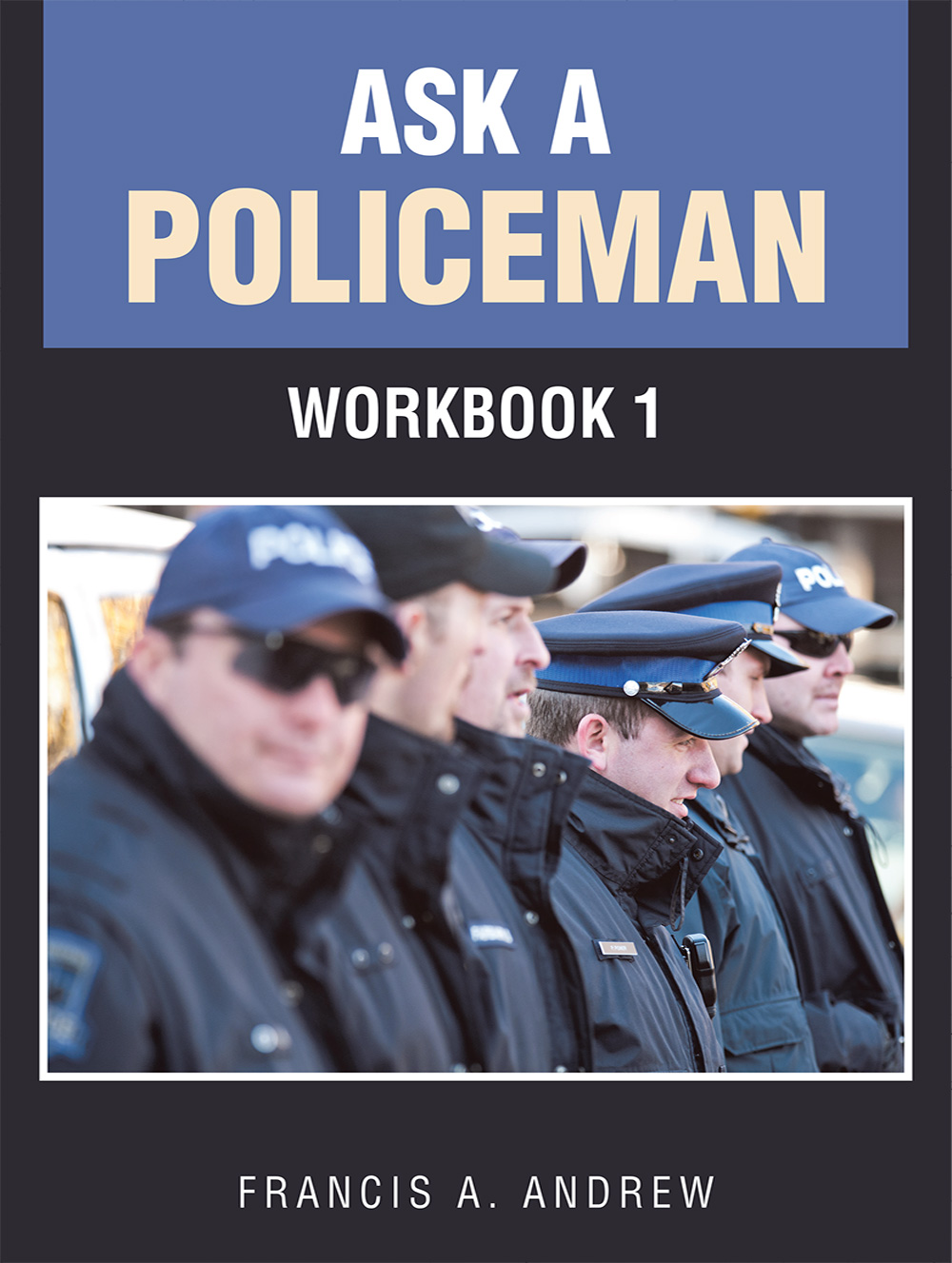
Quick Brush-up of Your English
The purpose of this book is mainly for those who have been away from the English classroom for quite some time and may feel that their competence in the English language has become a bit ‘rusty.’ They therefore need to ‘brush up’ on their English and consolidate what they have previously learned. Although a wide variety of skills and competencies will be encompassed by the users of this book, it is nevertheless presumed that the students
who approach its course material will already have a reasonable grasp of the English language, and thus will not be raw beginners.
Notwithstanding the presumption that students taking this course are at least of the post-beginner level, the author has endeavoured to ensure that this book is user-friendly, and trusts that students will have an enjoyable and pleasant journey through its pages.
While the course is based on three levels – Beginner, Intermediate, and Advanced, with each unit corresponding to one teaching session, the contact timing is entirely flexible. The teaching sessions herein displayed are purely for reasons of administrative convenience. Likewise, the 32 hours assigned to each level is purely recommendatory.

ENGLISH FOR UNIVERSITY ASPIRANTS
This book covers a wide variety of topics over a large cosmopolitan area embracing diverse cultural backgrounds. The purpose of this book is to provide for university aspirants the broad horizons they will need to make their experience of education at its highest level the most fruitful and rewarding. This publication will include a student’s book and a workbook; the workbook will give student’s the chance to work independently and at their own pace after the corresponding material has been covered in the student’s book. Is this book for English language students only? The simple answer to this question is ’no.’ Students of whatever discipline they may be engaged in studying, should have a reasonably extensive knowledge of the world around them. That world is becoming smaller due to both the speed of communications, transport, and the greater frequency of international movements
of peoples and races, It is the author’s hope after the students have diligently worked their way through the student’s book and workbook, they will have experienced an adventure which will have whetted their appetites for the greater adventures which lie ahead for them in their future.
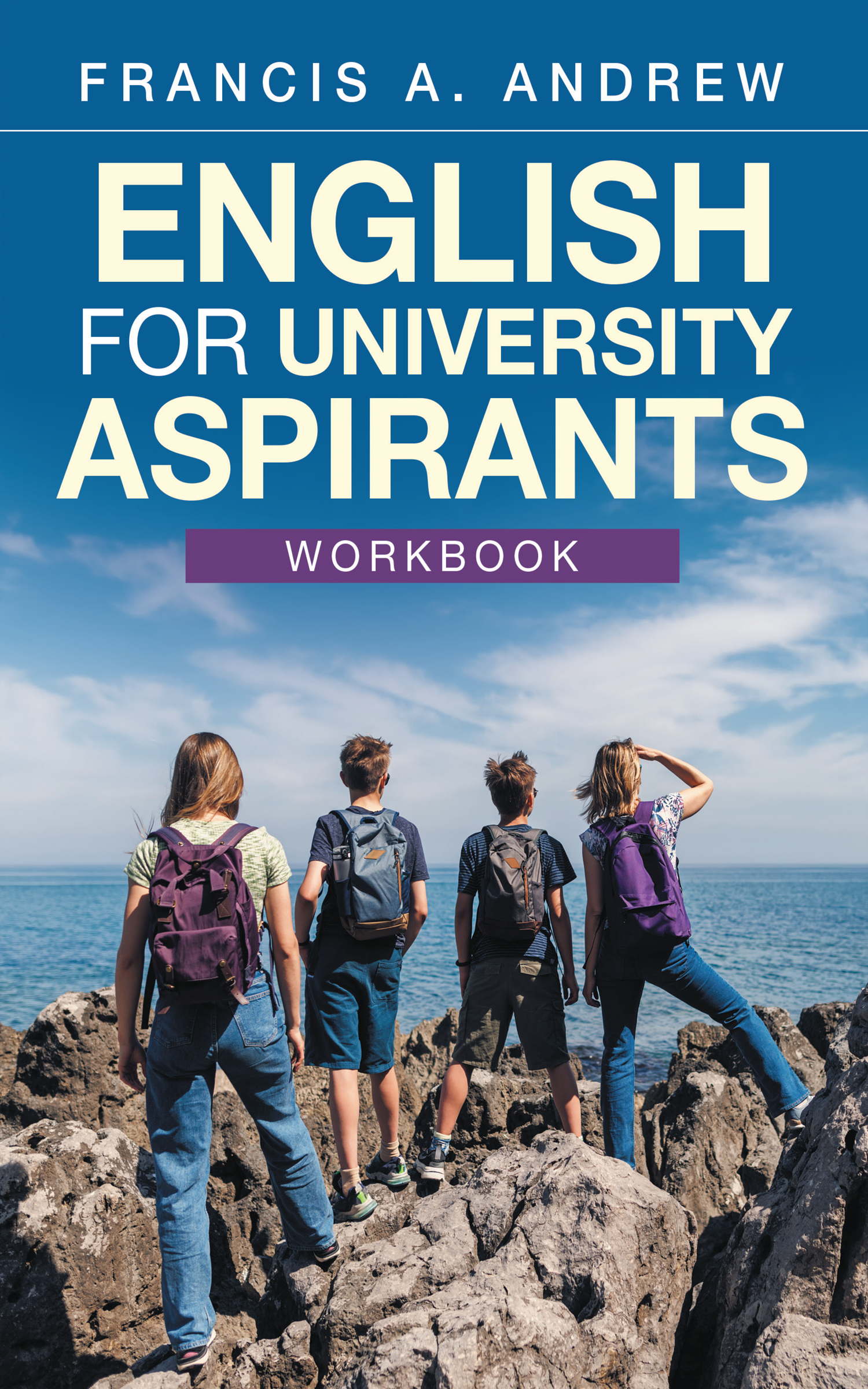
ENGLISH FOR UNIVERSITY ASPIRANTS
This book covers a wide variety of topics over a large cosmopolitan area embracing diverse cultural backgrounds. The purpose of this book is to provide for university aspirants the broad horizons they will need to make their experience of education at its highest level the most fruitful and rewarding. This publication will include a student’s book and a workbook; the workbook will give student’s the chance to work independently and at their own pace after the corresponding material has been covered in the student’s book. Is this book for English language students only? The simple answer to this question is ’no.’ Students of whatever discipline they may be engaged in studying, should have a reasonably extensive knowledge of the world around them. That world is becoming smaller due to both the speed of communications, transport, and the greater frequency of international movements of peoples and races, It is the author’s hope after the students have diligently worked their way through the student’s book and workbook, they will have experienced an adventure which will have whetted their appetites for the greater adventures which lie ahead for them in their future.
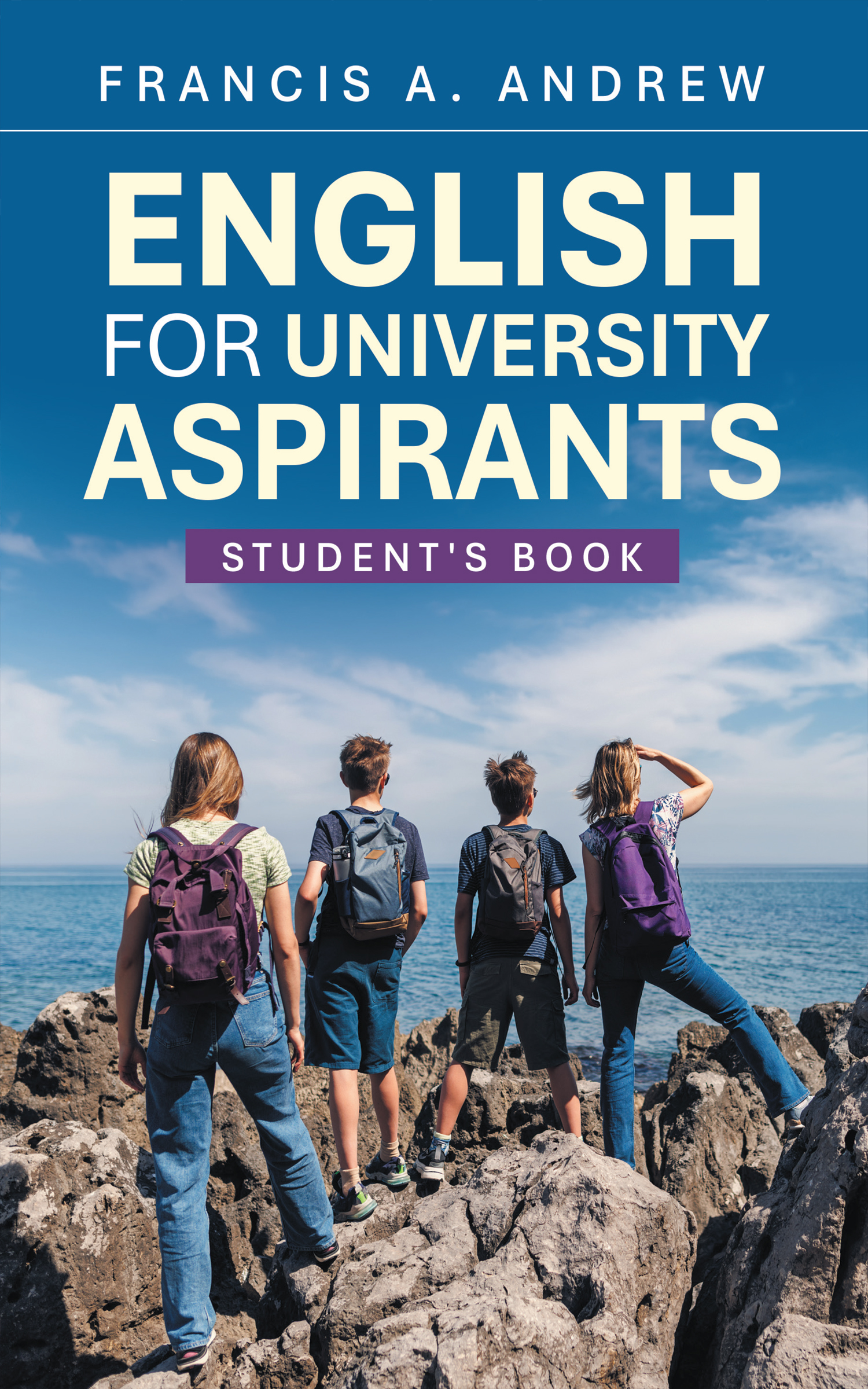
A Great Man of Astronomy
Is this a book that you would read from cover to cover? The simple answer is no! It is a book that the reader would dip into every now and again to get the flavour of one of Sir Patrick’s works. There is an appraisal of each of Sir Patrick’s works contained within it. This book constitutes the first of two, or perhaps three volumes of appraisals of Sir Patrick’s books. Why have I found it necessary to spread out his works across two or three volumes? For two reasons basically: firstly, Sir Patrick wrote around 200 books throughout his long life; secondly is the issue of book availability; all of Sir Patrick’s books are now out of print, and, the earlier ones mostly, are only sporadically available from antiquarian booksellers. It is a great honour for me to have this first volume ready for publication for the centenary year of Sir Patrick’s birth in 2023.
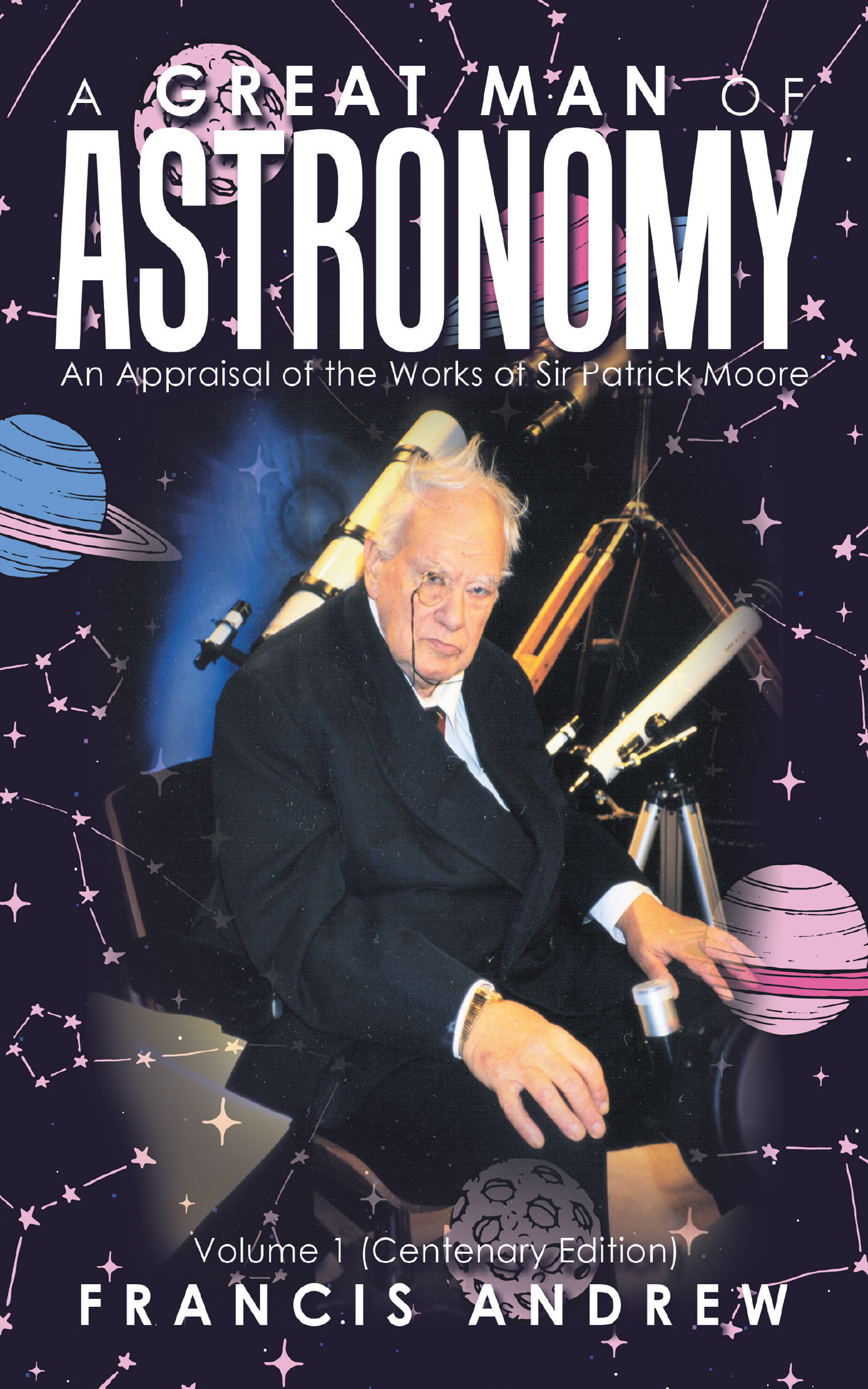
A Trip to Mars
Set around the middle of the twenty-first century, the book is about a journey to Mars that has gone wrong. NASA personnel, faced with massive budgetary cutbacks, are taxed to the limits of their ingenuity to construct the appropriate technology for the rescue mission. Dealing with the complexities of spacecraft technology, the novel also has running through it the machinations of corrupt politicians and business leaders who have their own agenda to follow—an agenda based on greed and personal gain.
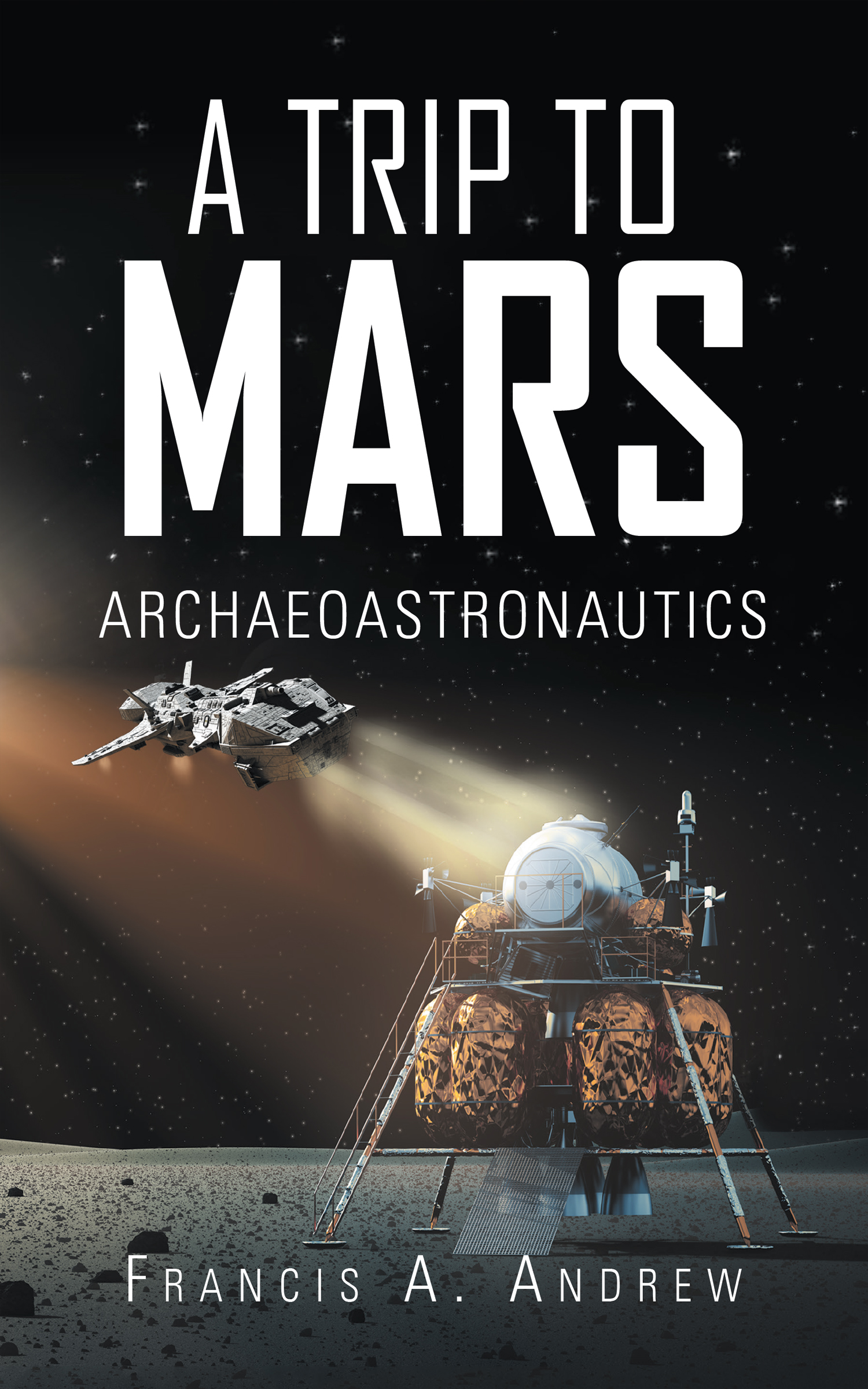
Who Said the Mechanics of Essay Writing Can’t Be Fun?
This book is essentially a sequel to Francis A. Andrew’s earlier book, Who Said English Grammar Was Boring?. The “sequel” begins by devoting a few chapters to some grammar points and continues with explanations and examples of twenty three essay types. As well as example essays, each unit provides reading passages which are unrelated to the essay type. The reason for this is to encourage students to read widely and thus to see reading and writing as interconnected and inter-related skills.
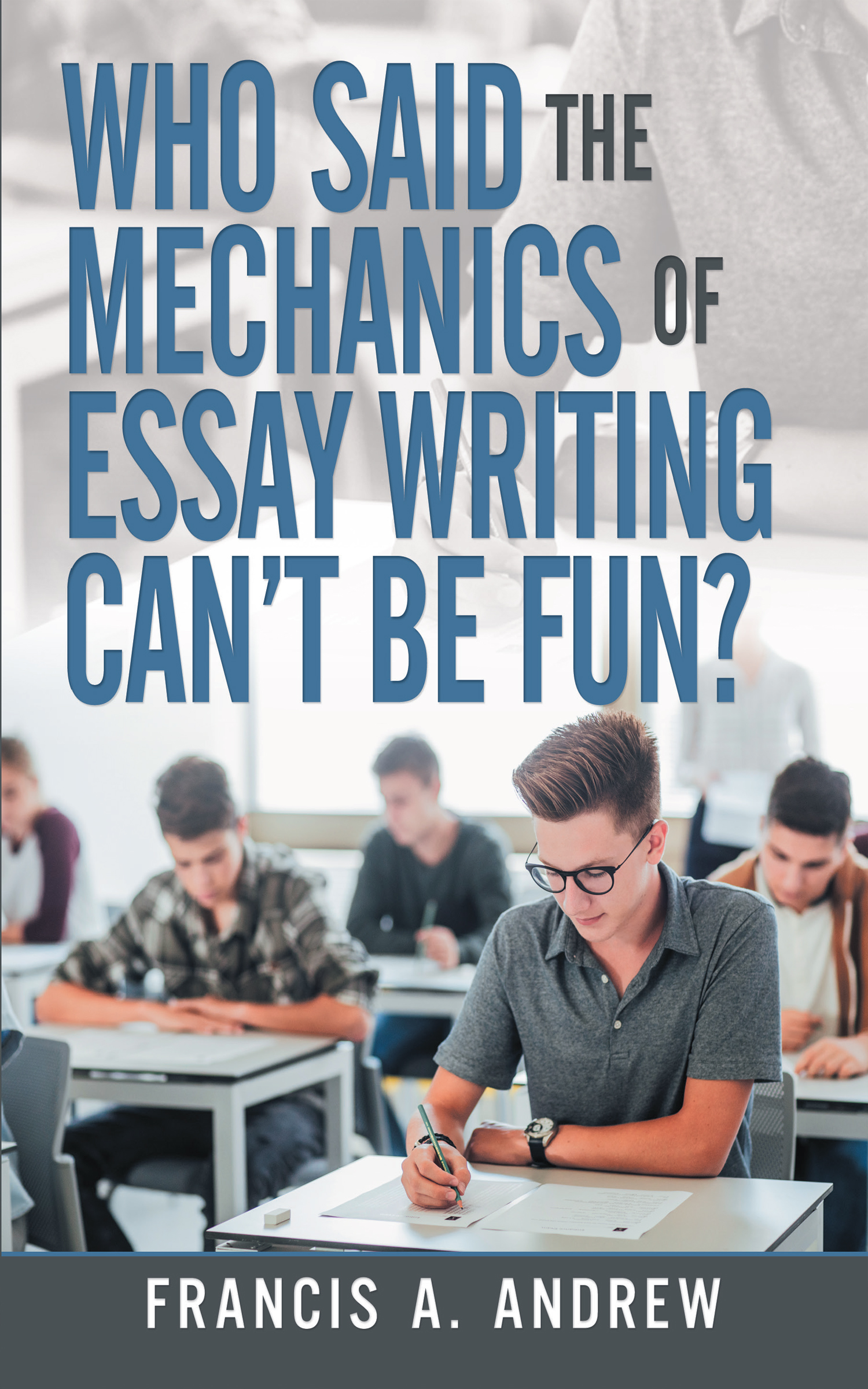
Football Is Our Game
Football Is Our Game combines grammar with English for Specific Purposes (ESP football) to make the process of English language learning more fun and enjoyable for students by providing an appropriate context and specific settings with which they are familiar and to which they can relate.
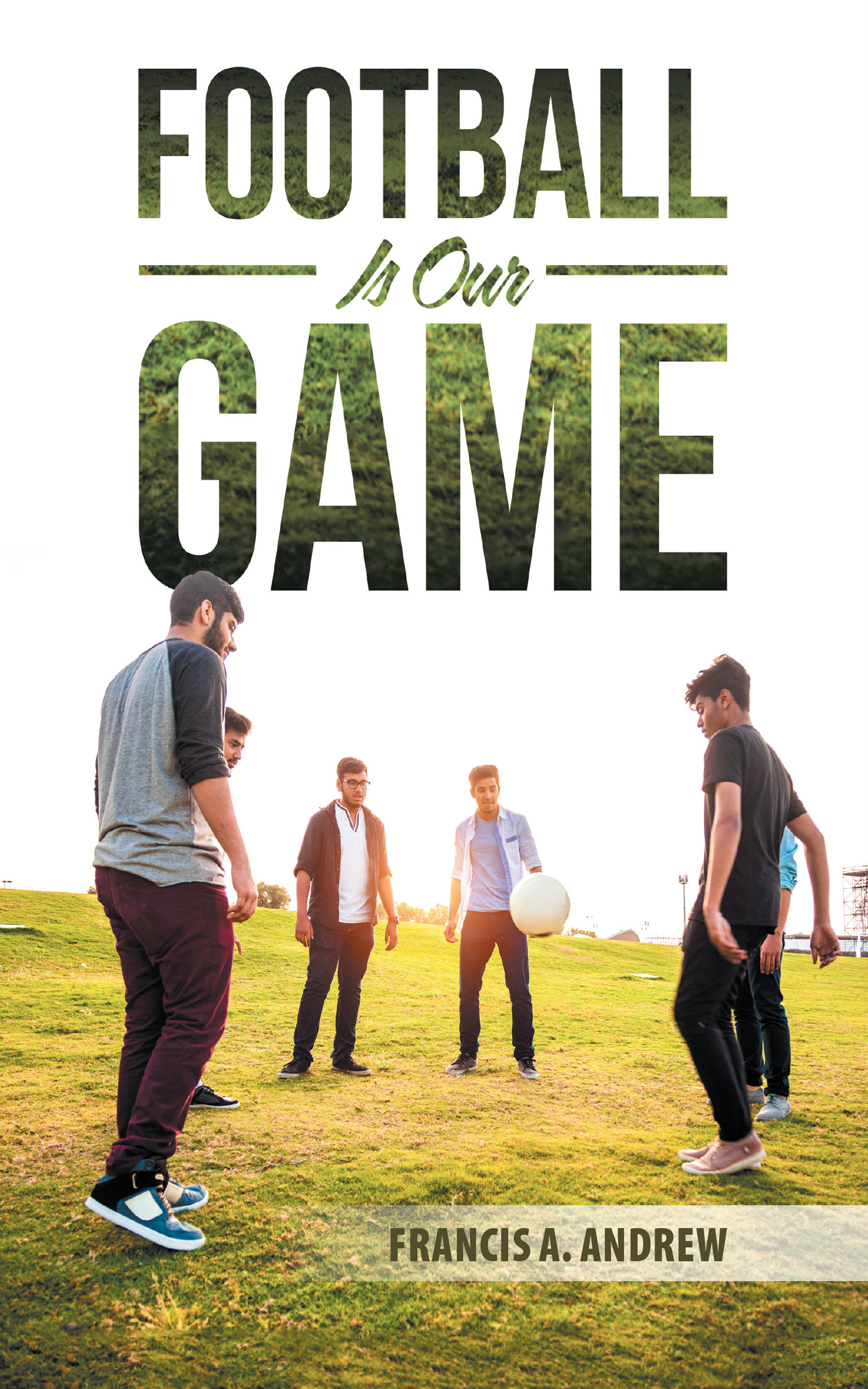
Who Said English Grammar Was Boring? (Students’ Workbook)
The world of education is full of grammar books. For most teachers and students of foreign languages, grammar books are generally dry and dusty and only to be consulted on a reference basis. However, Who Said English Grammar Was Boring? is not your conventional grammar book. Its core dynamic is based upon a conversation between the author and an English language instructor colleague. Apart from being an exposition of English grammar, the book also incorporates advice on teaching methodology and practice exercises for students. Apart from focusing on the four key areas of language learning—reading, writing, listening, and speaking—the book introduces another concept in the form of a practicum, which asks the students to take turns in giving a lesson to their classmates on what they have learned. It is hoped that this book will serve to take the monotony out of grammar learning.

Who Said English Grammar Was Boring?
Francis A. Andrew’s book certainly lives up to its name for after reading it through I could never again say that learning English grammar is boring. The author presents the teaching and learning of the English grammar in a truly unique setting; his thinking outside of the box has produced a work which should be used in almost every English language teaching institution.
—Yashu Singh. New Delhi, India.

A Great Man of Science
“Francis Andrew has completed a monumental ten year task of writing appraisals on all of the published works of the late Sir Fred Hoyle. It is truly a worthwhile accomplishment as all of Hoyle’s books are now out of print. Francis Andrew’s work therefore offers a great service in preserving the thoughts of one the twentieth century’s greatest minds.”
—Gihan, Weerasekara. Dompe, Sri Lanka.
“A Great Man of Great Science covers all of Sir Fred Hoyle’s publications from his fi rst in 1950 to his last in 2001. Francis Andrew’s appraisal of each of these works is the next best thing to reading the original works of Hoyle himself. After reading these appraisals, one could well be tempted to take the next step and read the actual works of Hoyle.”
—Siddhant Bahuguna. Uttar Pradesh, India.
“Francis A. Andrew has truly done a magnificent job in writing appraisals for each of Sir Fred Hoyle’s works. As Francis’ style of writing has done so much to make Hoyle come alive and inject into his works a relevancy for the twenty first century, so it would be that even if readers of this volume were unacquainted with any of Hoyle’s books, they would surely be tempted to procure for themselves the original works of Hoyle.”
—Ajinkya Bhede. Maharashtra, Nagpur, India.
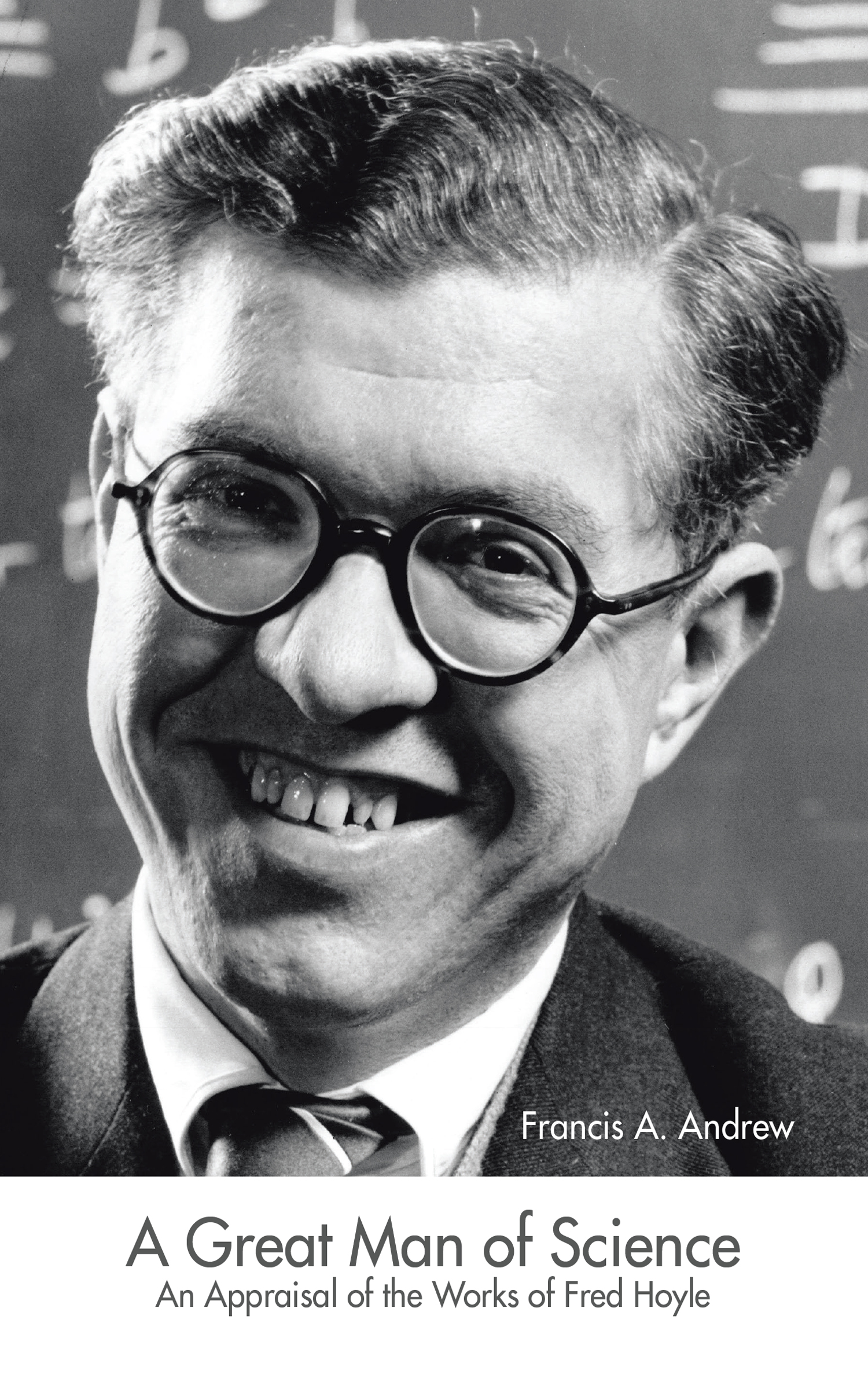
Cosmic Colossal
Cosmic Colossal, the brainchild of Aishwarya Pandey, is a true roller coaster of a ride as it takes the reader on a journey through the spirit dimension of the universe. Semester, the central character in the novel, is exiled to the earth, and it is through this exile that the spiritual and physical aspects of the universe overlap with each other. The personalities of the story’s characters are well-developed to the extent that they help take the reader deep into the ethos of the plot. Whether the reader is a professional scientist or a sci-fi enthusiast, Cosmic Colossal, brings about an awareness that there is more to the universe than what is perceived by the senses.
“As a complement to Cosmic Colossal, Francis A. Andrew has chosen to write an appraisal of Sir Fred Hoyle’s 1964 book entitled Man in the Universe. The parts of Hoyle’s book in which he discourses on the need for humankind to shift emphasis away from the material and on to the spiritual dovetails well with the setting of Cosmic Colossal.”
—Siddhant Bahuguna
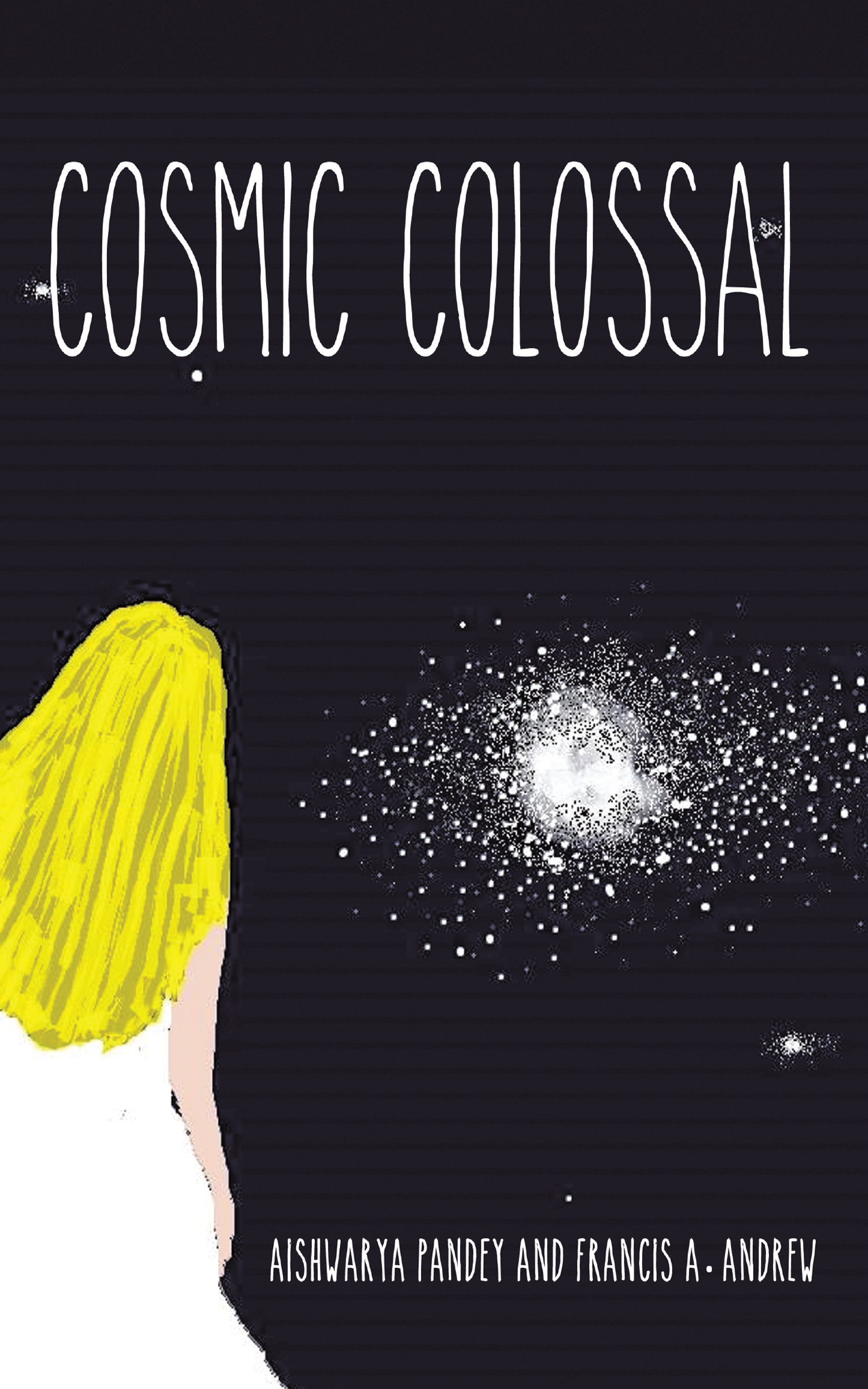
It Happened in India
The story is set in India around the middle of the century. It projects a country which has become fully developed in all aspects of science and technology to the extent that it can enter the space race with fully fledged confidence, and its scientists can provide solutions to issues as diverse as the world’s energy crisis and the scourge of cancer. That these magnificent achievements come at a great price can be seen by the attempts by India’s enemies to thwart this progress and bring that country’s scientific endeavours to a grinding halt. The story’s central character, Aparajeet Chopra, not only has to engage himself in a campaign to save his country, but also himself from a series of terminal diseases which his enemies, in some mysterious way, manage to inflict on him. While the story presents to its readers an image of a modern, scientific and technologically advanced India, the religious and cultural traditions which weave together the rich tapestry of what makes India the marvel and jewel that it most undoubtedly is, are brought out in full panoply for the reader to enjoy.
Astronomy has so often been seen as ‘the poor man of science;’ that misperception however, is thankfully being dispelled as the great strides in scientific discoveries have served to engender an awareness of the close interlinkage between astronomical and terrestrial phenomena. One cannot understand the origin and nature of the Universe without knowledge of the advances currently being made in the field of sub-atomic physics – most especially with regard to the quest for the now not-so-elusive Higgs-Boson particle. Likewise, observation and study of the Universe allows scientists to work within the largest laboratory ever constructed – a laboratory given by nature and at zero cost, yet which provides the means for the study of sub-atomic phenomena at energies beyond what even the best of terrestrial laboratories can produce. It is within this context that Francis Andrew has written “Journeys With Stellarman” with the hope of encouraging the next generation of scientists not to eschew what can only turn out to be a highly rewarding lifetime’s career in the astronomical sciences.
—Sidhant Bahuguna, India
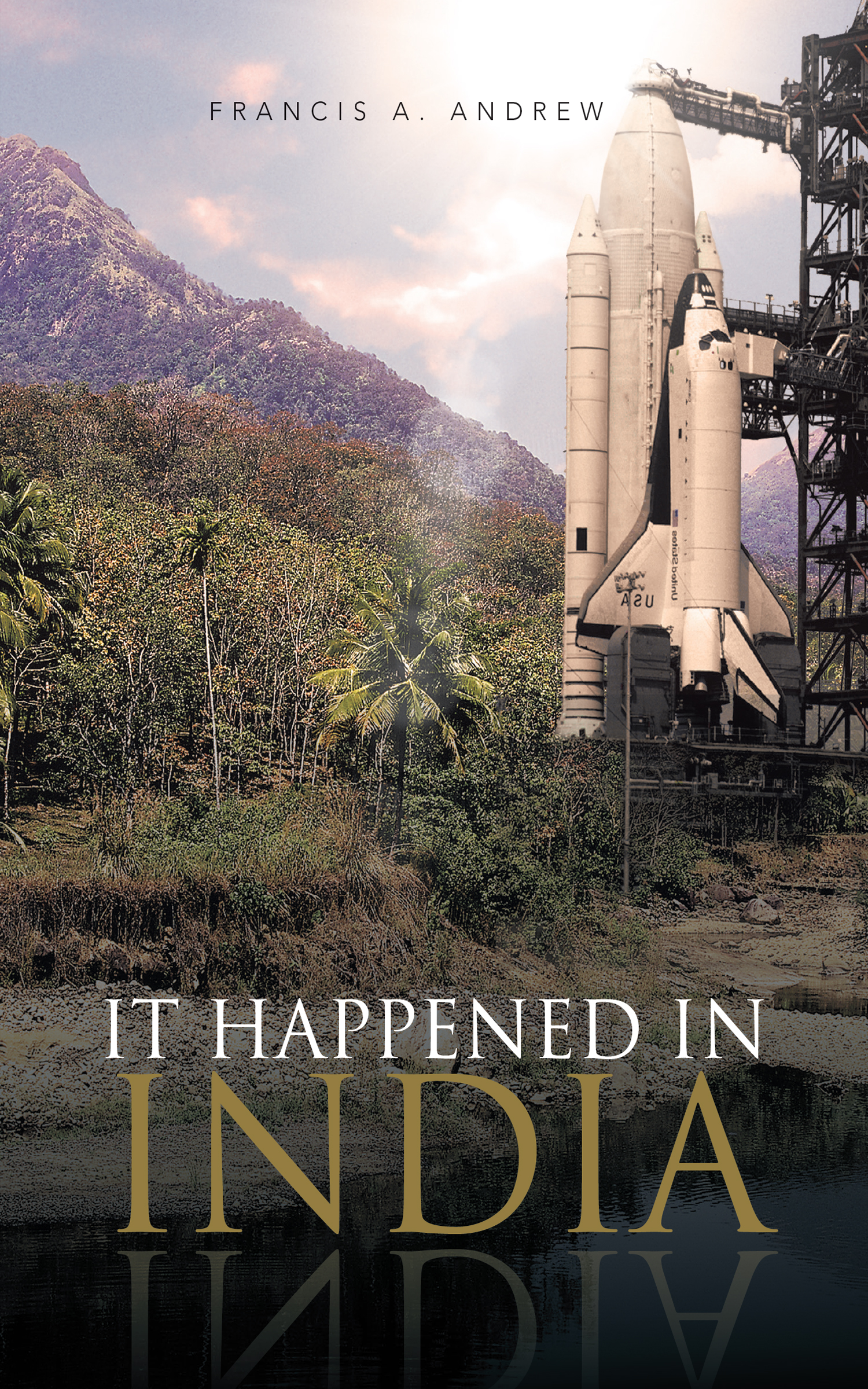
Journeys With Stellarman
Astronomy has so often been seen as ‘the poor man of science;’ that misperception however, is thankfully being dispelled as the great strides in scientific discoveries have served to engender an awareness of the close interlinkage between astronomical and terrestrial phenomena. One cannot understand the origin and nature of the Universe without knowledge of the advances currently being made in the field of sub-atomic physics – most especially with regard to the quest for the now not-so-elusive Higgs-Boson particle. Likewise, observation and study of the Universe allows scientists to work within the largest laboratory ever constructed – a laboratory given by nature and at zero cost, yet which provides the means for the study of sub-atomic phenomena at energies beyond what even the best of terrestrial laboratories can produce. It is within this context that Francis Andrew has written Journeys With Stellarman with the hope of encouraging the next generation of scientists not to eschew what can only turn out to be a highly rewarding lifetime’s career in the astronomical sciences.
—Siddhant Bahuguna, India
Francis Andrew has written a truly unique form of book which blends science fiction with the factual data of the astronomical sciences. Its rich mix of fact and fantasy within a literary stylistic form of school-boy humour ensures that it entertains as much as it educates. I see no reason why this book should not be the means by which children are brought to a realisation that astronomy is truly a worthwhile career to pursue and a vocation that is equal to any other which one may care to name.
—Giahn Weerasekara, Sri Lanka
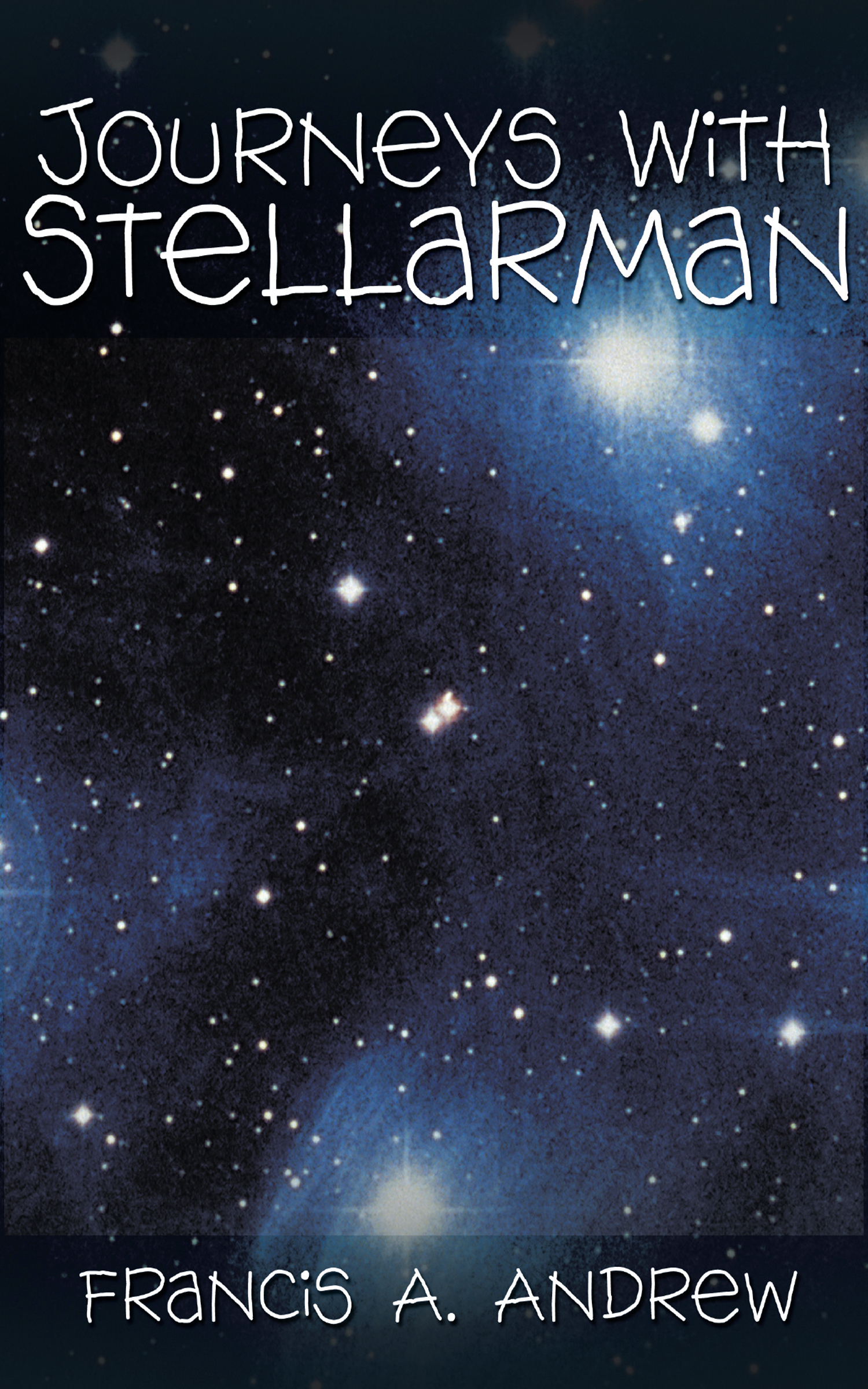
Intelligent Design
By the year 2050, great advances have been made in the realm of computer science, but the most sophisticated computer ever to have been built is about to be revealed to the world. The brainchild of Professor James Parton, a computer scientist, and Professor Maureen Hartley, a neurologist, Astra, by breaching the divide between inanimate machine and human consciousness, will lead not only these two brilliant Cambridge scientists and their PhD research assistant, Chester Wilkins, into strange and new dimensional experiences of space and time, but the whole of humanity to the very brink of extermination. Parton, Hartley, Wilkins and their team soon find themselves working against the clock to save the entire human race from what seems to be certain doom. With a bizarre potpourri of methods as diverse as they are seemingly unrelated, they set out on an adventure which is as exciting as it is dangerous.
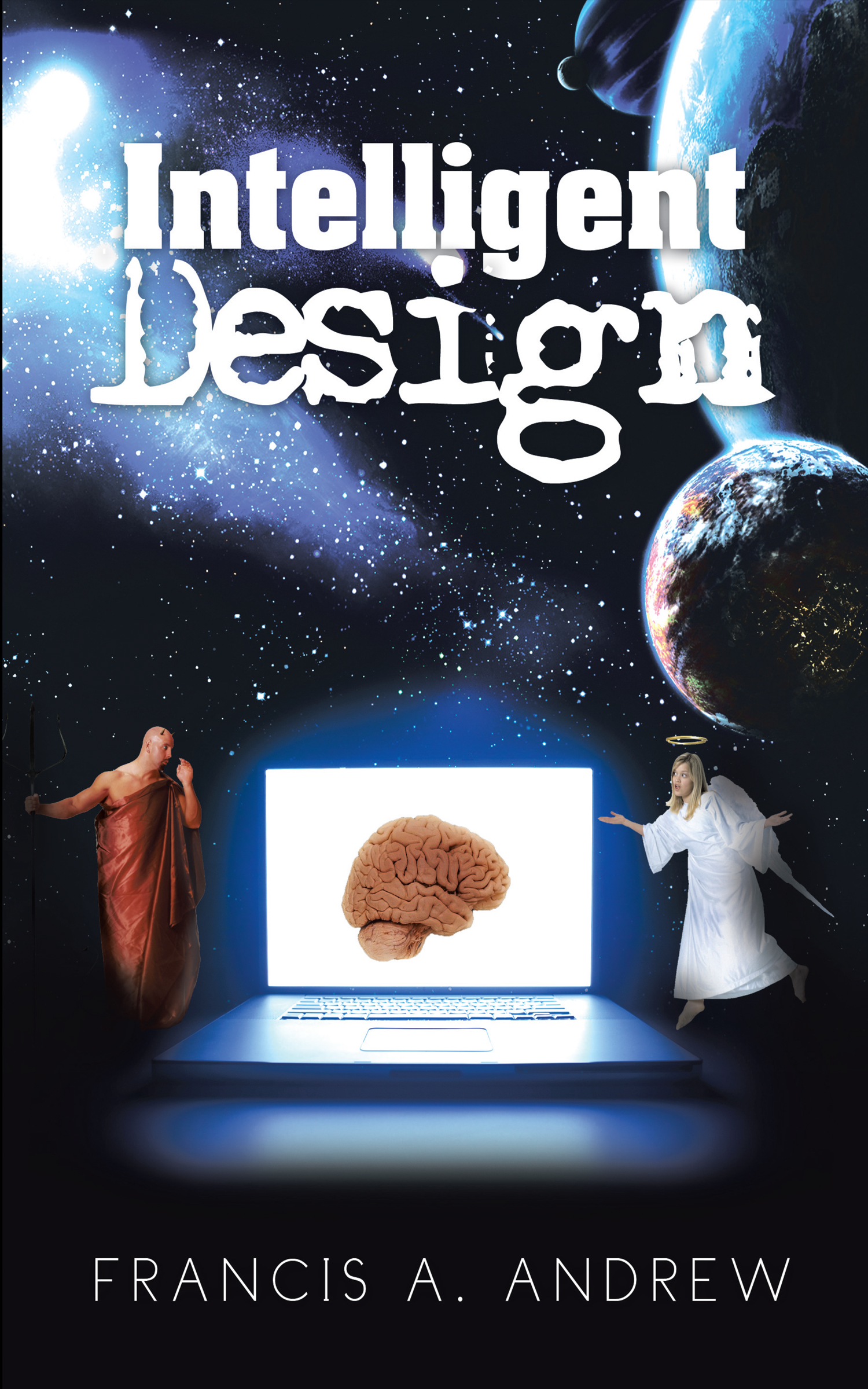
A Science Fantasia
The following text which you are about to read was confided to me for safe-keeping by a NASA “deep-throat” with the strict instructions that it was not to be publicly disseminated until the year 2072 – thirty two years after the events to which it refers. By the time this information appears, I will long have been out of this world, and I do not mean as an astronaut! I am now 90 years old, and taking advantage of the new invention of Time Lapse Web Pages, or, Internet Hibernation, as some would call it, I do hereby post the full account of the strange happenings between 2030 and 2032, and so make them widely available by Internet WakeUp Alarm set for 2072.
Sir Reginald Wosley
(Astronomer Royal)
Cambridge: 2040.
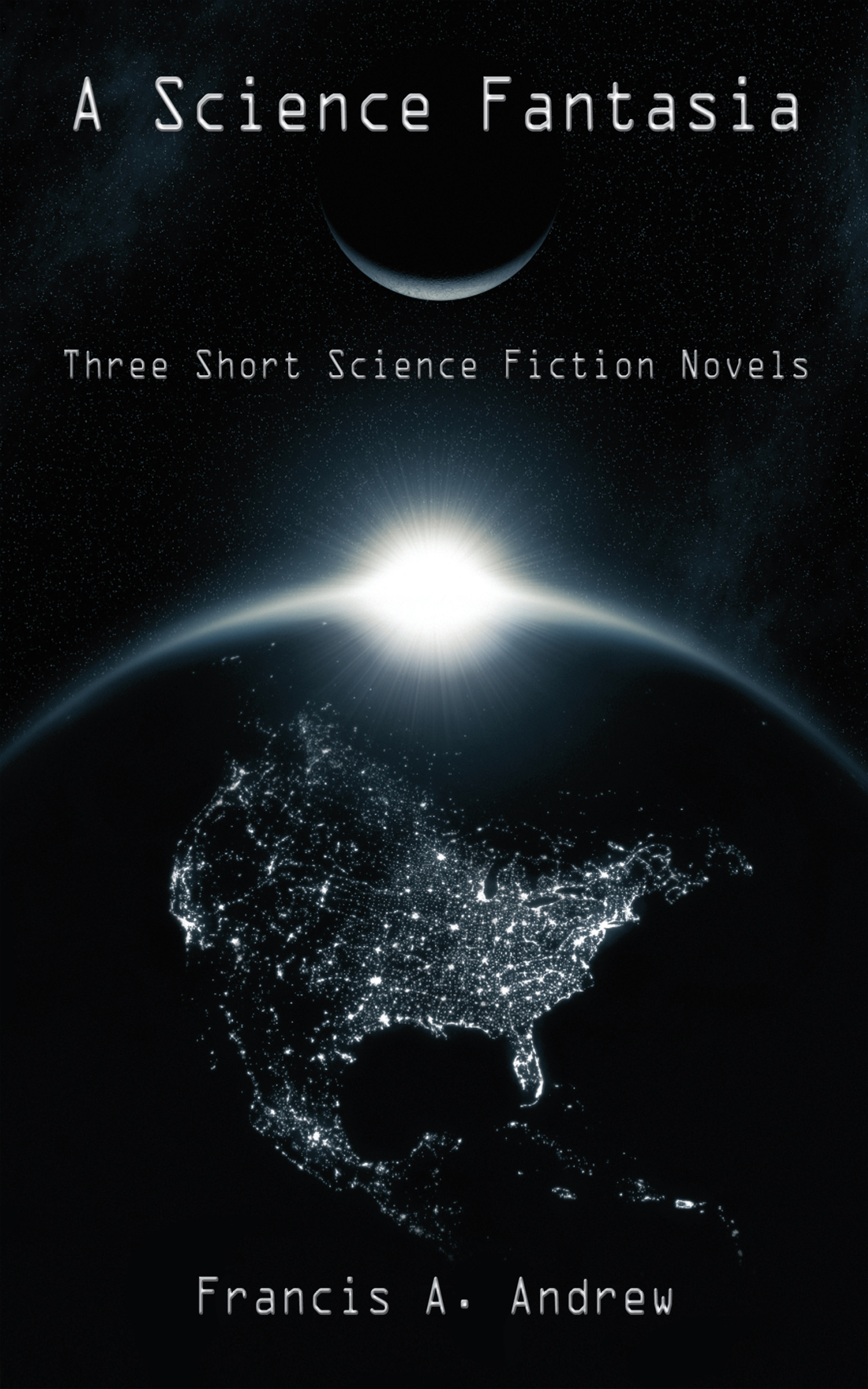
Maenan: The Second Battle of Britain.
During the course of the Second World War, ( 1939 – 1945 ) the British people, regardless of class or creed, pulled together as a single nation in a way that they had never done so in their history. Yet, after the war, something went terribly wrong: politicians of all political parties embarked upon the most attrocious assault the nation had ever seen upon its sovereignty and independence. It was as though our politicians, who had so encouraged the British people to fight and die to save the nation from German aggression and Nazi onslaught, were picking up where Adolph Hitler had left off. “Maenan: The Second Battle of Britain” envisages a future time when the British people once again awaken and assert their independence. Their struggle against a hostile United States of Europe is seen through the eyes of the ancient Holmes family of Tregale Castle. The adventures of this family enable us to find the very roots of Great Britain and its means to recover its national sovereignty, dignity and pride as a free and independent country. The novel embraces past, present and future and is a wonderful mix of tradition and state-of-the-art technology.
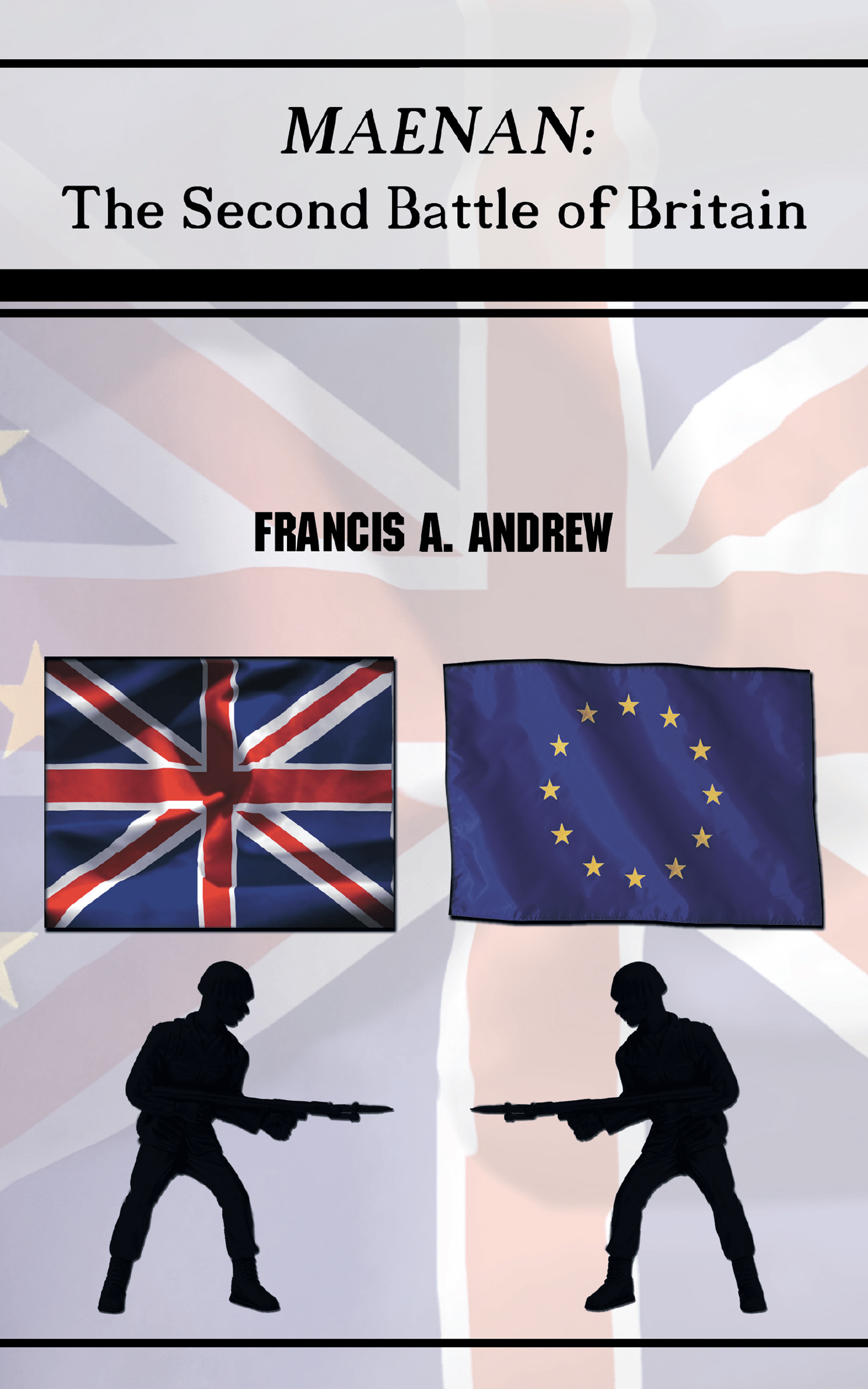
Fiddler in the Boardroom
In this darkly humourous trilogy of short stories, a space ship, a wacky hotel, and a bizarre notion of marriage vows provide a backdrop for the weirdest of financial scandals.
In 2030, advances in space technology have made it possible for the average middle-class citizen to travel beyond the confines of the Earth. Scarrowgate in Yorkshire is an average sized town with a lunatic asylum. After the Chairman of Space Tours, Inc., visits the asylum’s governor, he divulges that space travel can be a healing journey for the mentally ill. But is it all just a publicity stunt? The Dimrun Hotel in the Lancashire town of Krowbar has seen better days, thanks to its worst manager ever—Nelson Walkees, who is nevertheless determined to turn things around. But is he about to throw away his future? The marriage between Charlie and Samantha Chowkins is on the rocks. Samantha has grown tired of all the bad investment decisions Charlie has made. But is she about to find out why Charlie really married her?
The stories in Fiddler in the Boardroom provide a glimpse into the comical side of financial scandals, proving that even the sneakiest white-collar criminals will eventually be caught.
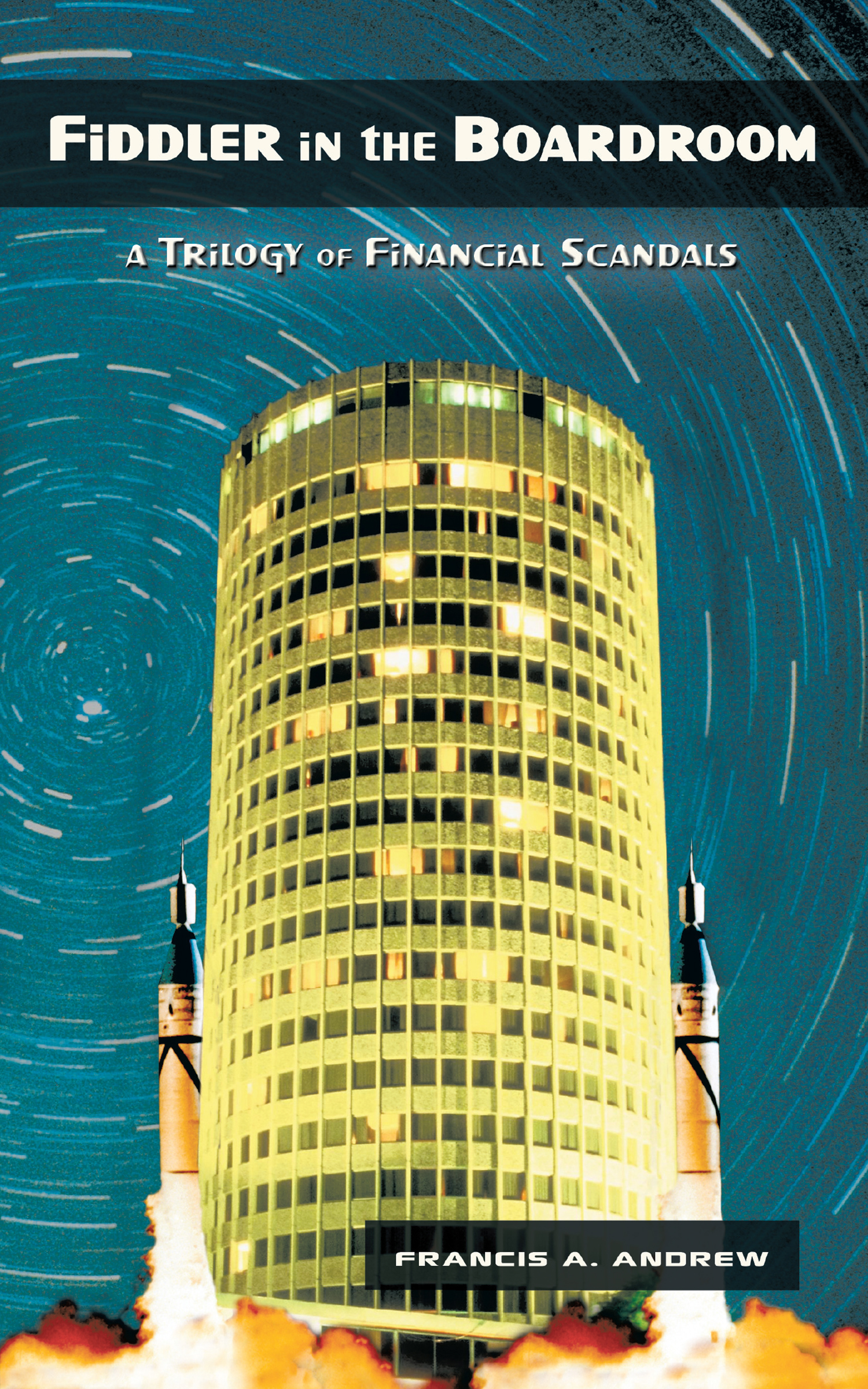
The Next Ice Age
Happiness is a scarce commodity in 2037. Judge John Benson presides over the Great Court of Political Correctness as European citizen 761 B23 NP46, also known as Kenneth Mackenzie, is proclaimed guilty of blasphemy for denying the existence of global warming.
The young Mackenzie is both a scientist and a genius on a quest to discover what lies at the root of political correctness. When the court presses him to agree that global warming exists, Mackenzie refuses and is immediately caught in a violent struggle that results in the murder of a high figure of political correctness. After Mackenzie manages to defy death and a labor camp sentence, he is rescued by a strange knight who takes him on a journey on horseback to a cave where he learns he must assist on a mission to rescue Scotland from the tyrannies of political correctness.
As Mackenzie and his colleagues become involved in a race against time to find a solution to political correctness which is taking over the Earth at an alarming rate, they also must determine if political correctness and Nazism are the same phenomenon. What they find in their quest for the truth will be both unexpected and profoundly shocking.
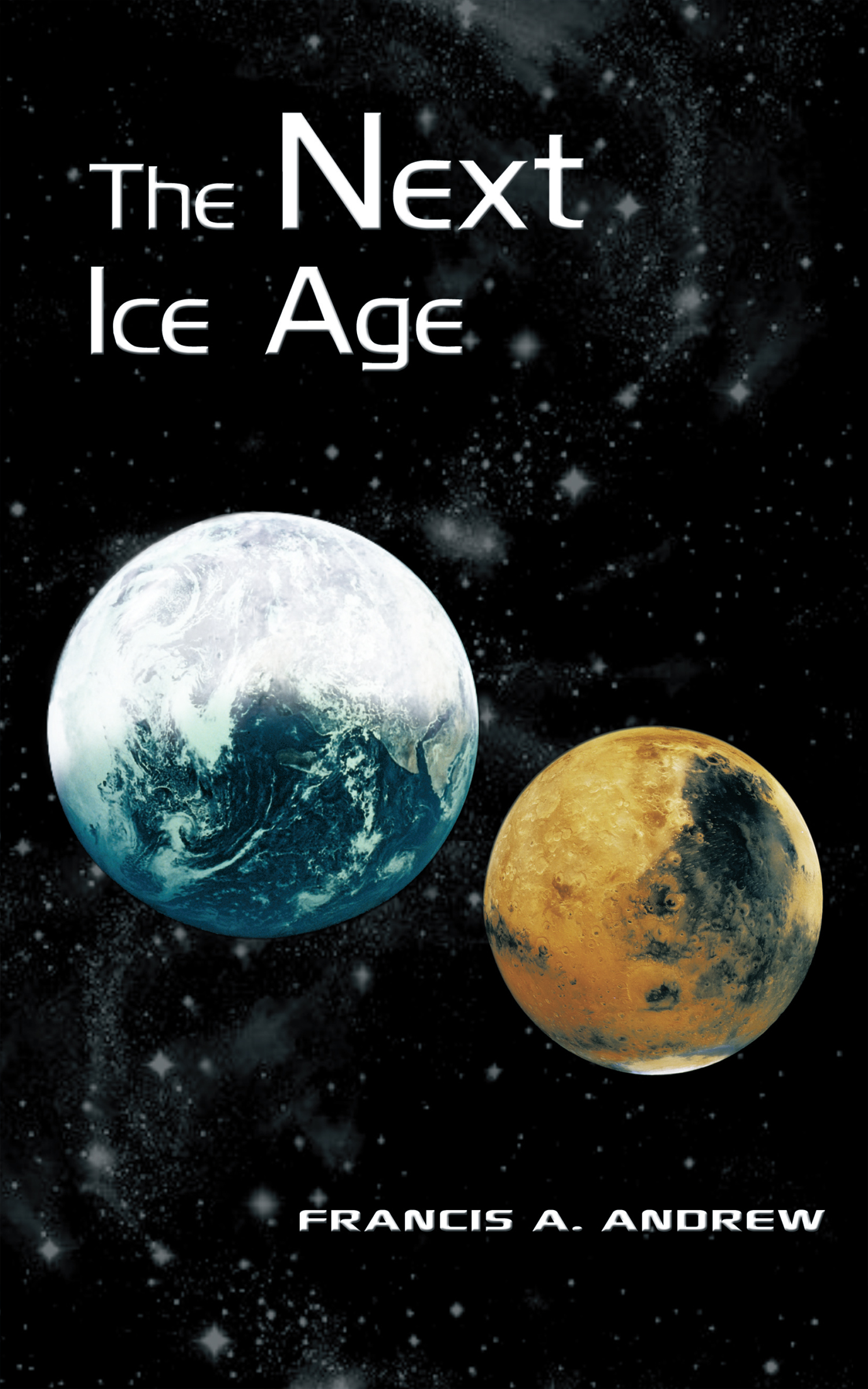
A Science Fantasia
Although not a scientist by training or profession, Francis A. Andrew has always maintained an interest in science and technology throughout his life. He was greatly influenced by the works of the late Sir Fred Hoyle which he started reading at a very young age. Hoyle taught him to think in a critical and logical fashion. Hoyle’s works of fiction have built into them the possibility of their becoming science fact at some future date. It is with this concept in mind that Francis Andrew has written A Science Fantasia. While we forge ahead ever onwards and upwards with our scientific and technological achievements, our moral state seems not only to be static but in actual regress. Andrew believes that unless mankind faces up to its moral obligations and places its scientific research within a viable ethical framework, the technology upon which our lives so much depend could well prove to be the rope by which the human species collectively hangs itself.
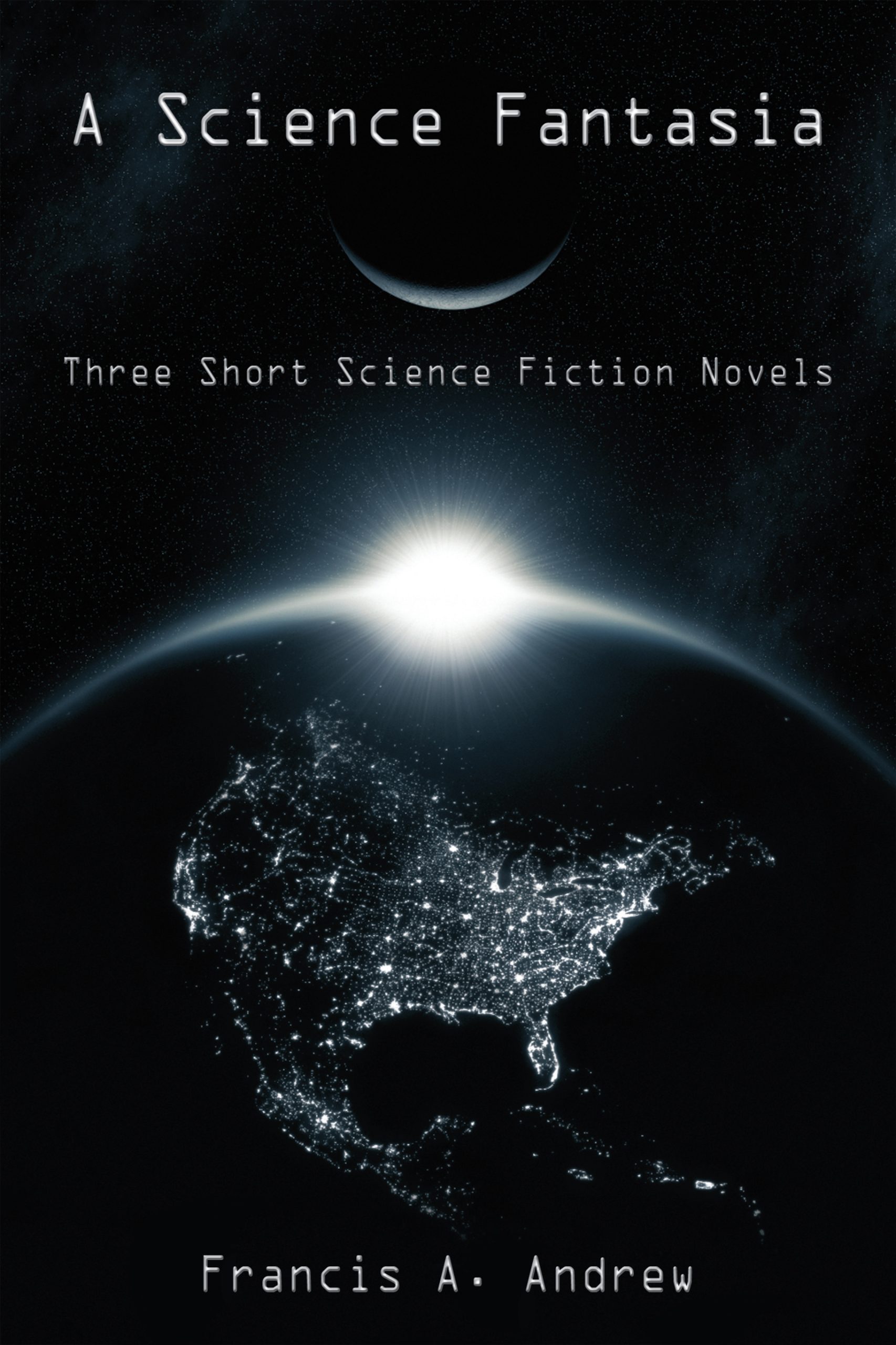
Pathogens from the Cosmos
Francis Andrew was inspired to write Pathogens from the Cosmos after reading Diseases from Space (1979) in which the authors, Sir Fred Hoyle and Professor N. Chandra Wickramasinghe, presented compelling evidence that influenza and other so-called infectious diseases actually have their origin in outer space. They are then brought to the Earth by comets thus challenging the conventional wisdom that pathogens are spread from human to human.
Pathogens from the Cosmos is a novel that mirrors the present day worries about the spread of the Swine Flu. The story takes place during the first third of the twenty-first century. The entire crew of a space station is killed by a mysterious virus. Scientists are baffled about the origin of the virus. One man, Professor William Brigmore, an astro-chemist working at Manchester University, uses all his powers of persuasion to convince the scientific and political establishments that the killer virus is an incident from space.
